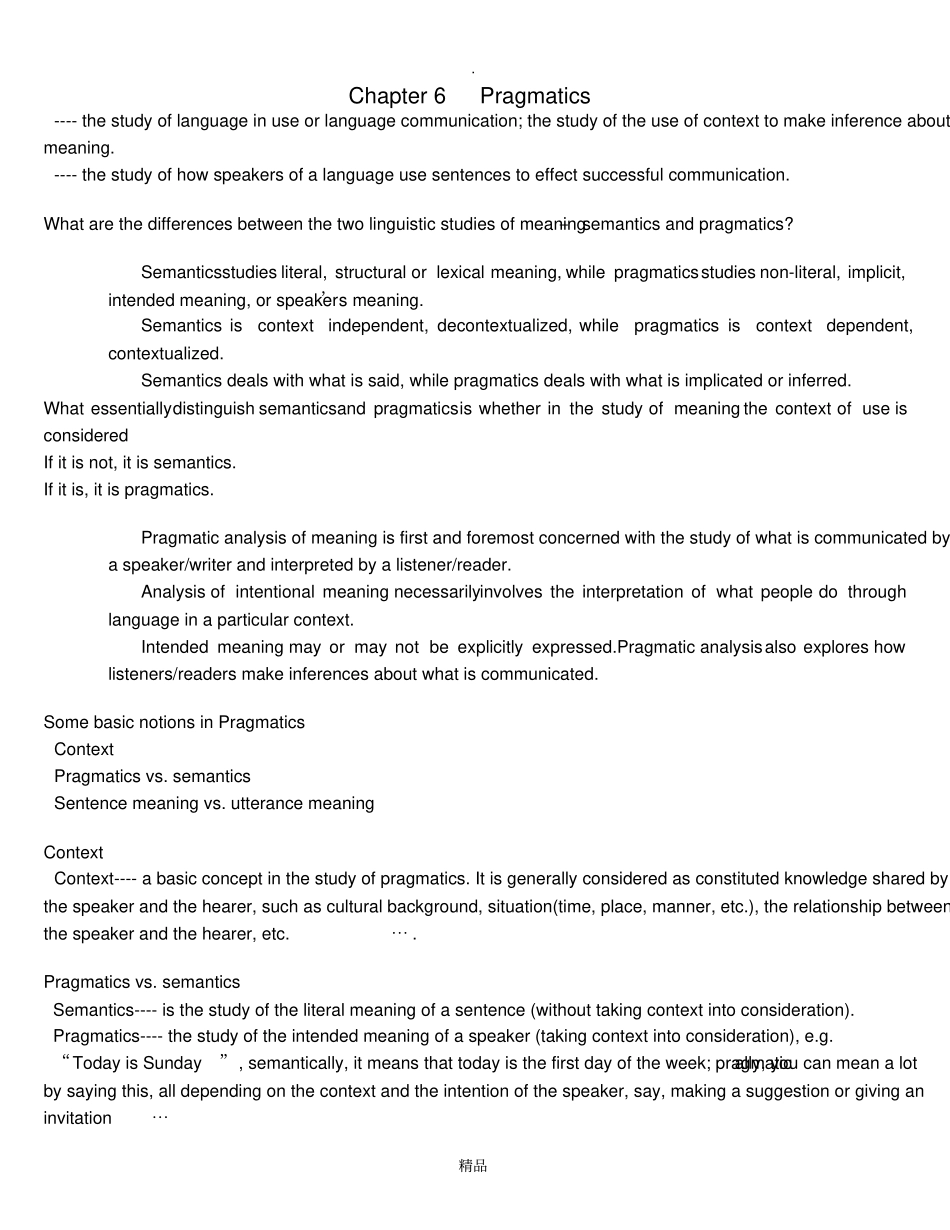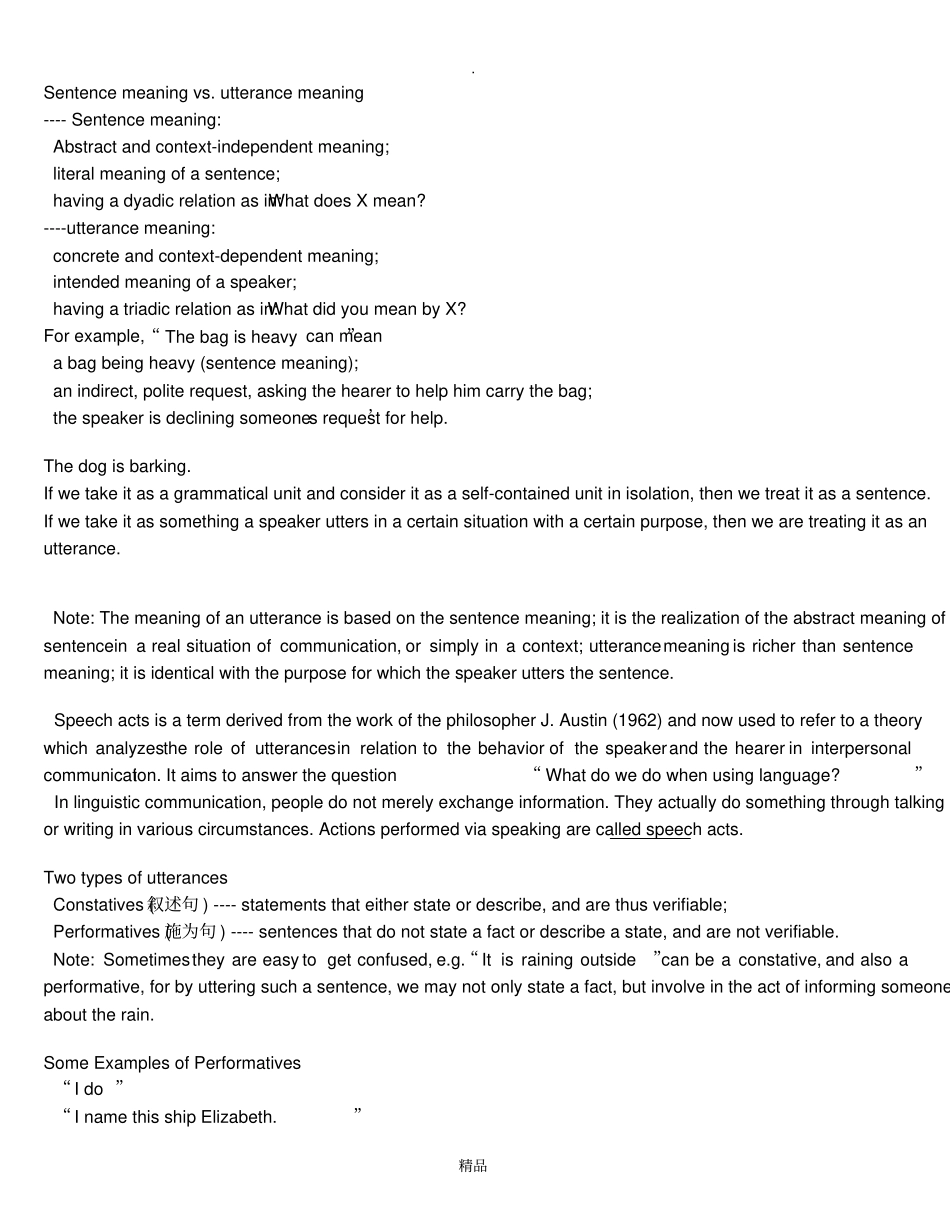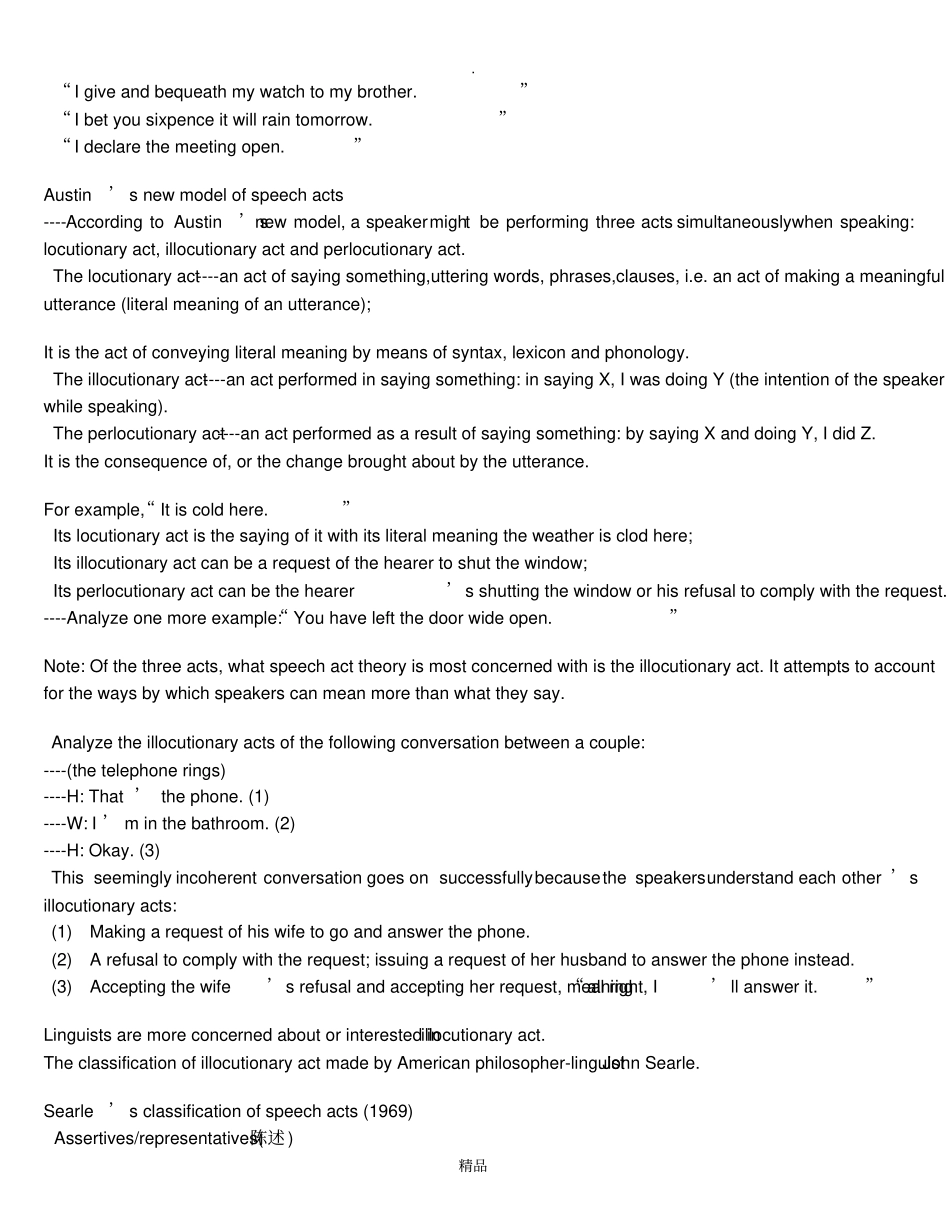. 精品Chapter 6 Pragmatics ---- the study of language in use or language communication; the study of the use of context to make inference about meaning. ---- the study of how speakers of a language use sentences to effect successful communication.What are the differences between the two linguistic studies of meaning – semantics and pragmatics?Semantics studies literal, structural or lexical meaning, while pragmatics studies non-literal, implicit, intended meaning, or speaker’s meaning.Semantics is context independent, decontextualized, while pragmatics is context dependent, contextualized.Semantics deals with what is said, while pragmatics deals with what is implicated or inferred.What essentially distinguish semantics and pragmatics is whether in the study of meaning the context of use is consideredIf it is not, it is semantics.If it is, it is pragmatics.Pragmatic analysis of meaning is first and foremost concerned with the study of what is communicated by a speaker/writer and interpreted by a listener/reader.Analysis of intentional meaning necessarily involves the interpretation of what people do through language in a particular context.Intended meaning may or may not be explicitly expressed. Pragmatic analysis also explores how listeners/readers make inferences about what is communicated.Some basic notions in PragmaticsContext Pragmatics vs. semantics Sentence meaning vs. utterance meaning ContextContext---- a basic concept in the study of pragmatics. It is generally considered as constituted knowledge shared by the speaker and the hearer, such as cultural background, situation(time, place, manner, etc.), the relationship between the speaker and the hearer, etc.⋯ . Pragmatics vs. semantics Semantics---- is the study o...


